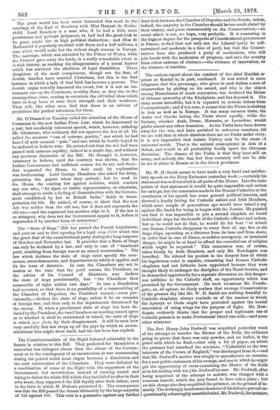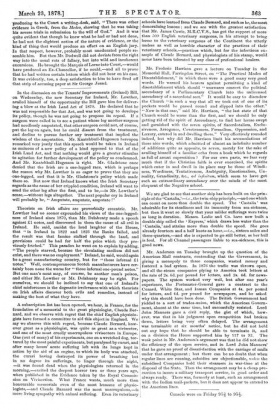The Rev. Henry John Dodwell was acquitted yesterday week of
the attempt to murder the Master of the Rolls, the evidence going to prove that there was only powder, and no bullet, in the pistol with which he fired,--that only a bit of paper, on which the prisoner had inscribed the sentence, " Unfaithful to the true interests of the Crown of England," was discharged from it,—and that Mr. Dodwell's motive was simply to manufacture an occasion for a new public statement of his wrongs, and one in which he might get the opportunity of cross-examining the Master of the Rolla as to his dealing with his (Mr. Dodwell's) case. Mr. Dodwell, after being acquitted of the attempt to murder, was charged with a common assault, which the jury found to have taken place ; but on this charge also they acquitted the prisoner, on the ground of in- sanity. The strikingly incoherentcharacter of his defence proved un- questionably a thoroughly unsettled mind. Mr. Dodwell, for Watauga, reducing to the Court a writing-desk, said, "There was other evidence in Greek, from the Medea, showing that he was taking his severe trials in submission to the will of God." And it was quite evident that though he knew what he had or had not done, he had not the slightest notion of the nature of evidence, or the kind of thing that would produce an effect on an English jury. In that respect, however, probably most uneducated people re- semble him. But then Mr. Dodwell did not deviate from the right way into the usual ruts of fallacy, but into wild and incoherent excursions. He brought the Marquis of Lorne into Court,—would have produced an Ex-Chancellor, if he could,—and all to prove that he had written certain letters which did not bear on his case. It was evidently, too, a deep satisfaction to him to have fired off that strip of accusing paper at Sir George Jessel.



































 Previous page
Previous page